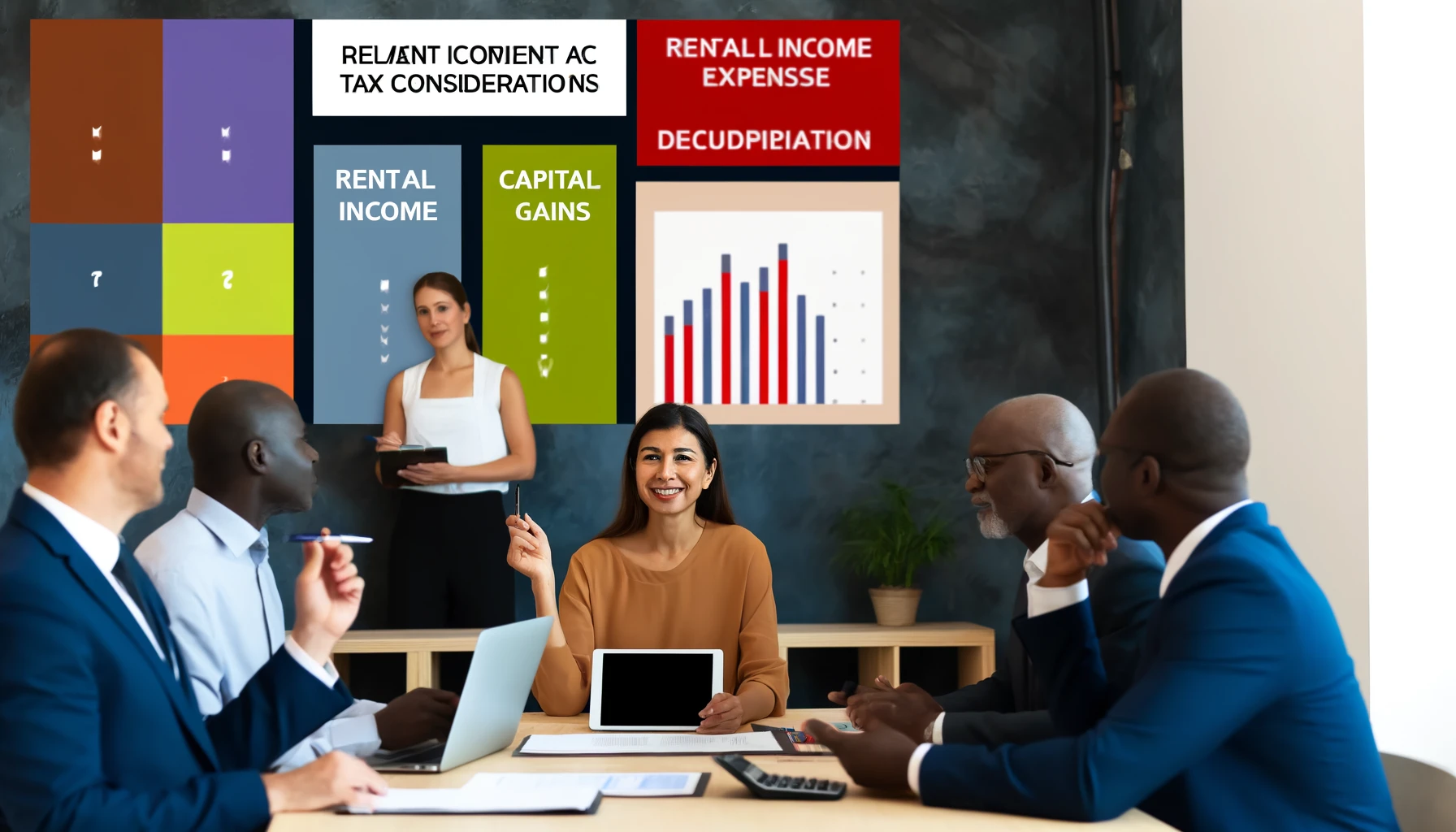Investing in rental properties can be a lucrative venture, but it’s essential to understand the tax implications that come with it. As a real estate agent at Palazzo Chupi, I’ve seen many investors succeed by taking full advantage of the tax benefits available to them. However, the complexity of tax laws can be daunting. This blog post aims to demystify the key tax considerations rental property investors should be aware of. By the end of this article, you should have a solid grasp of how to navigate these financial waters, ensuring you maximize your investment returns.
Depreciation Deductions
One of the most significant tax benefits for rental property investors is depreciation. The IRS allows you to depreciate the value of your rental property over 27.5 years, excluding the value of the land. This means you can deduct a portion of the property’s value each year, reducing your taxable income.
Example: If your property is worth $275,000 (excluding the land), you can deduct $10,000 annually as depreciation.
Mortgage Interest Deduction
Another substantial deduction is mortgage interest. If you have a mortgage on your rental property, the interest you pay is deductible. This can be a considerable expense, especially in the early years of a mortgage when the interest portion of payments is higher.
Repairs vs. Improvements
It’s crucial to distinguish between repairs and improvements. Repairs are expenses that keep your property in good condition, such as fixing a leaky faucet or repainting a room. These costs are fully deductible in the year they occur. Improvements, on the other hand, add value to the property and extend its useful life, such as adding a new roof or installing a central air conditioning system. Improvement costs must be capitalized and depreciated over several years.
Passive Activity Loss Rules
Rental property income is generally considered passive income, which means it is subject to the passive activity loss rules. These rules limit the amount of loss you can deduct from your non-passive income. However, if you actively participate in managing the property, you may be able to deduct up to $25,000 of rental property losses against your other income.
Qualified Business Income Deduction
The Qualified Business Income (QBI) Deduction can offer a significant tax break. Rental property owners who qualify can deduct up to 20% of their net rental income. To qualify, the rental activity must be considered a trade or business, which often requires regular, continuous, and substantial involvement.
Travel Expenses
If you travel to your rental property for maintenance or management purposes, you can deduct travel expenses. This includes costs for transportation, lodging, and meals. However, it’s important to keep detailed records and receipts to substantiate these deductions.
Home Office Deduction
If you manage your rental properties from a home office, you may qualify for a home office deduction. This allows you to deduct a portion of your home expenses, such as mortgage interest, insurance, utilities, and repairs, based on the percentage of your home used for business.
1031 Exchange
A 1031 exchange is a powerful tax-deferral strategy that allows you to defer capital gains taxes when you sell a rental property, provided you reinvest the proceeds into a similar property within a specified time frame. This can be an excellent way to upgrade or diversify your investment portfolio without paying taxes on the gains.
Tax Filing Tips
To maximize your tax benefits, consider these tips:
- Keep Detailed Records: Maintain meticulous records of all income and expenses related to your rental properties. This includes receipts, invoices, and bank statements.
- Use Tax Software or a Professional: Tax laws can be complicated, and using specialized tax software or hiring a professional can help ensure you’re taking full advantage of all available deductions.
- Stay Informed: Tax laws change frequently, so it’s important to stay informed about the latest rules and regulations that may affect your rental property investments.
Understanding tax considerations for rental property investors is crucial for maximizing your investment returns. From depreciation deductions to the benefits of a 1031 exchange, knowing the ins and outs of these tax strategies can save you significant money. Make sure to differentiate between repairs and improvements, take advantage of the Qualified Business Income Deduction, and keep detailed records to make the most of your tax filings. Staying informed and consulting with a tax professional can further optimize your tax benefits.
Conclusion
Navigating the tax landscape as a rental property investor can be challenging, but with the right knowledge and strategies, you can significantly reduce your tax burden and enhance your investment returns. Remember to take advantage of depreciation, mortgage interest deductions, and other available tax breaks. Stay informed, keep excellent records, and don’t hesitate to seek professional advice to ensure you’re making the most of your rental property investments. At Palazzo Chupi, we’re here to help you succeed in every aspect of your real estate journey.

